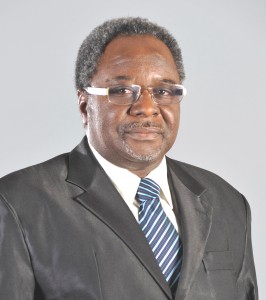What is the global situation with regards to energy skills shortage?
In the energy industry globally there is a growing demand for technical personnel in operations and maintenance, supervisors with appropriate levels of technical and safety experience, and front-line management skills. In addition, a significant number of current employees are near retirement age and will soon leave the workforce. This is exacerbating the skills shortage.
How about in Africa specifically?
In Africa, the skills shortage is more acute due to deficiencies in energy and energy-related data, limited skilled professionals, unavailability of suitable analytical tools, lack of coordinated energy planning infrastructure, and weak linkages between the different institutions in the energy sector. Similarly, few national and sub-regional efforts are organised enough to be used for carrying out regional energy research. The region also lacks adequate and fully developed energy facilities that can enable countries to try out both
conventional and bold new technologies.
Are there regional variations within Africa?
Yes. For instance, while in some countries energy skills are needed predominantly in the upstream sector, others have shown greater need of downstream management skills. In this regard, the weaknesses in the existing energy situation and the challenges for energy planning call for a concerted and systematic effort for the region to strengthen its capabilities in order to realise effective and robust energy planning.
There is a need, therefore, to set up a coordinated and integrated mechanism that will harness not only the existing skills and human resources, but also further develop them to the required standard so that Africa becomes more competitive in the global energy sector. Furthermore, it will provide a basis for collaboration with developing countries and other parts of the world.
What are the key issues to boosting Africa’s skills base?
The key issues include strengthening human and institutional capacities for the effective development of regional models and scenarios; harmonizing national, sub-regional and regional plans; developing energy database for planning and implementation; supporting knowledge networks and other collaborations among energy specialists; and tracking developments in scientific and technological advances in the energy sector.
What is the current situation regarding energy-related education at universities?
African universities and other educational institutions have been struggling to cope with the increasing demand of skilled manpower for the region’s energy industry. Scientific and engineering education at universities need to be improved in order for Africa to compete with other parts of the world through sustained funding, knowledge and info transfer, and through continuous upgrades of learning and teaching facilities in those institutions. Greater attention should also be given to research and development (R&D) activities to develop capacity and increase local production.
Where does R&D fit into the picture?
In general, R&D is conducted by specialised units or centres belonging to companies, universities and government agencies. R&D aims to achieve future-oriented, longer-term activities in science or technology, scientific research techniques without biased outcomes. Therefore it is obvious that R&D plays an important role in developing effective energy skills to be able meet future targets.
How can the private sector help?
In Africa, the private sector has not done much yet in developing manpower in the energy sector. Thus, there is only a handful of training programmes, but we do have internships in some major industries aimed at helping new graduates to develop their careers.
Therefore, to help address the issues of skills shortage, the sector needs to train and retrain its personnel. For example, there is a need for regular training programmes for industrial energy managers on measures to improve industrial energy efficiency.
What role do you see WEC playing to help solve the skills problem?
The WEC can play a catalytic role in assisting African institutions and relevant organisations in enhancing energy industry skills. The WEC collaborates with different African countries to work out a customised template to meet the skills needs of particular sectors and come up with a way to address the problems identified. Organising regular regional and sub-regional training sessions – as the WEC has been doing for many years – assists in guiding institutions and sharing updated innovations and ideas that will improve Africa’s energy industry skills. The WEC’s Future Energy Leaders programme has also been helping young energy professionals develop their international experience and awareness of global issues by bringing them together with like-minded professionals from other countries.






